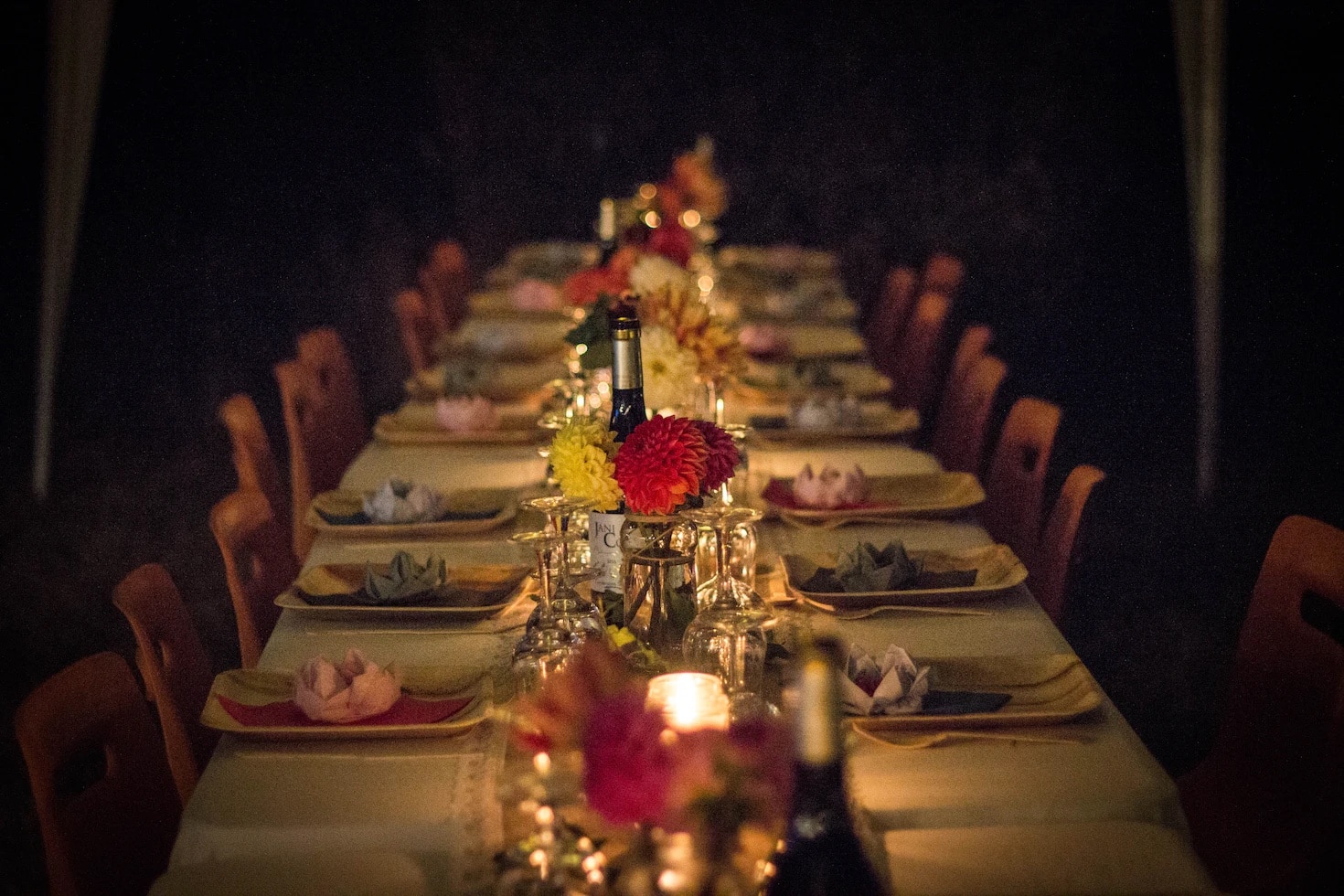Revelation 19:7: Let us rejoice and exult and give him glory, for the marriage supper of the Lamb has come, and his Bride has made herself ready.
When does the marriage supper of the Lamb occur, and what will it look like? Progressive dispensationalists place it in heaven; specifically, after the rapture and during the seven-year tribulation period. Spurgeon, who had access to Gill’s writings and pastored the same congregation 83 years later, disagrees with his predecessor. Spurgeon puts the marriage supper in the Millennial Kingdom:
Whether we live till Christ comes again, or whether we fall asleep in him, many of us know that we shall sit down at the great wedding feast in the end days, and we shall partake of the supper of the Lamb in the day of his joy and glory. We are looking across the blackness and darkness of the centuries into that promised millennial age wherein we shall rejoice with our Lord with joy unspeakable and full of glory.
Charles H. Spurgeon, “The Marriage Supper of the Lamb,” August 21, 1887
Gill, however, has a more nuanced view. He believes the actual marriage supper of the Lamb is the participation by Jewish believers in the Gospel ministry and ordinances in the latter day light and glory. To see it, we must return to its OT typecast.
The Marriage Supper in the OT
One thing we appreciate about Gill is he reads the Bible forward, not backward. He calls attention to three OT passages (not the only three, mind you), which he feels point to the marriage supper of the Lamb.
I prefer John Gill’s style: Read the Bible forward, not backward.
First, Hosea 2:19 states, “And I will betroth you to me forever. I will betroth you to me in righteousness and justice, in steadfast love and in mercy.” In its original context, Hosea spoke these words to OT Israel, who almost exclusively were ethnic Jews. Gill, in alignment with Paul’s reasoning in Romans 11, explains this prophecy relates primarily to ethnic Jews who are converted in the latter days. Of course, he does not discount the timeless principle certainly “applies” to every particular soul, married to Christ, at conversion. Yet, primarily, Gill maintains this speaks . . .
. . . of the people of the Jews, when converted in the latter day, when will be the marriage of the Lamb with them, and with the fulness [sic] of the Gentiles then brought in. . . . though the Jews have been divorced, they will be received again, and be afresh betrothed.
John Gill, comments on Hosea 2:19
Second, Isaiah 49:18b states, “As I live, declares the LORD, you shall put them all on as an ornament; you shall bind them on as a bride does.” Again, Isaiah was speaking to OT Israel. Gill comments:
So in the latter day, when the Jews are converted, and the fulness [sic] of the Gentiles brought in, the marriage of the Lamb will be come, and the church made ready, as a bride.
John Gill, comments on Isaiah 49:18
Finally, Isaiah 62:5 states, “For as a young man marries a young woman, so shall your sons marry you and as the bridegroom rejoices over the bride, so shall your God rejoice over you.” Gill envisions:
[T]here will be such a profusion of blessings on the church in the latter day, as will abundantly shew [sic] the joy of Christ in his people.
John Gill, comments on Isaiah 62:5
Gill refrains from spiritualizing the words of Hosea and Isaiah. Rather, he interprets them as fulfilled, literally, when the Spirit is poured out on the Jews in the latter day. To be certain, this occurred at Pentecost. Yet, Gill feels Pentecost served as a precursor to an even greater outpouring of the Spirit immediately preceding the glorious appearing of the Christ.
Marriage Supper Different from Marriage Dinner
Some might say, “What about Jesus’s parable of the wedding feast in Matthew 22?” Gill sees that as a different event. Jesus calls the wedding feast a “dinner,” not a “supper” (Matt 22:4). The “dinner” is for the times of the Gentiles, when the Spirit is poured out on them in Gospel times. The “supper,” more particularly, is for the Jewish converts in the latter day light and glory. Once more, he explains:
[T]his is distinguishable from the supper of the Lamb, in the evening of the world, in the latter day, when the Jews will be converted, and will not act the part they are represented to do in the parable; and the fulness [sic] of the Gentiles will be brought in, and the Gospel will have a general spread all over the world.
John Gill, comments on Matthew 22:4
This brings us to the marriage supper in Revelation 19. . . .
Marriage Supper in Revelation 19
It might appear from the above-mentioned OT typecasts that Gentiles have no place at the marriage supper. Not so. Gill sees the “supper”—primarily—as celebrating the return of the Jews to their divorced husband. Yet, he sees the Gentile-laden gospel congregations as the hosts of the glorious “supper.” He states:
[A]t this time the Jews will be converted, and that Jews and Gentiles will become one church-state, and will worship and praise the Lord together.
John Gill, comments on Revelation 19:1
He envisions Jewish converts flowing into the Gentile congregations to commune with them in unity. He believes the phrase, “marriage supper of the Lamb,” specifically refers to:
[T]he Gospel ministry and ordinances, and communion of them, to which the Jews will be called to partake of in the latter day.
John Gill, comments on Revelation 19:9
It is a beautiful picture of the believing Gentiles welcoming home their born-again Jewish brothers and sisters; and in this way, all Israel shall be saved. That, indeed, is reason to celebrate!
Reflections
Several thoughts come to mind after taking in Gill’s breathtaking picture of the marriage supper. First, it is a thrilling image that should strike excitement in the heart of every born-again believer. The unjealous joy of welcoming home the roots that support us (Rom 11:18), our Jewish brothers and sisters, is exhilarating.
Second, I appreciate the time Gill spent with the OT Hebrew prophets. Too often, we start with the book of Revelation, pluck a passage from Thessalonians, impose that grid on Daniel’s 70 weeks, and create an eschatology that works on paper. However, no one ever starts with the OT Hebrew prophets. Why?
Gill steeped himself in the prophets. He spent time with them; he learned to think like they thought; write like they wrote; see the world like they saw it. I’ve often wondered, “If we spent more time with the OT Hebrew prophets than our favorite eschatological writer, then our eschatological views might change.”
Third, I appreciate how Gill reads the Bible forward, not backward. Again, he commented on every verse in the OT before he came to the NT. Few, if any, eschatological writers have done that. They jump into the book of Revelation with an uninformed understanding of the prophets. Often, we see later revelation imposed on and even altering earlier revelation without any NT writer’s authentication. I prefer John Gill’s style: Read the Bible forward, not backward. Revelation’s author, John, was Jewish. John’s heritage, too, was steeped in the OT prophets. What’s more, God revealed Scripture to mankind progressively. Before we spend years studying the book of Revelation, we should spend double that time studying the OT Hebrew prophets.
Before we spend years studying the book of Revelation, we should spend double that time studying the OT Hebrew prophets.
Finally, even given my great admiration for Gill’s work, I hesitate to jump in with both feet on Gill’s view for one reason. No NT author made the connection Gill made from the prophetical texts he cited. That concerns me. It doesn’t mean Gill is wrong. It simply means I hesitate to embrace it as biblical authority. Gill made seemingly sound connections, correspondences, and trajectories. Yet, others have done the same to justify their heresies. We cannot help but notice: If it were that obvious, why didn’t the Apostle John make that connection plain; and if he didn’t, who gives us the authority to do so?
I, for one, hope Gill is correct. I would love to welcome my Jewish brothers and sisters in Christ into the Gospel congregations. In the meantime, I’ll keep inviting poor souls, Jew or Gentile, to the “supper,” and leave God to worry with the guest list!




